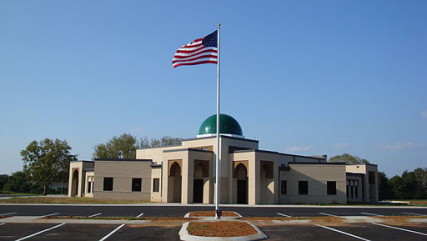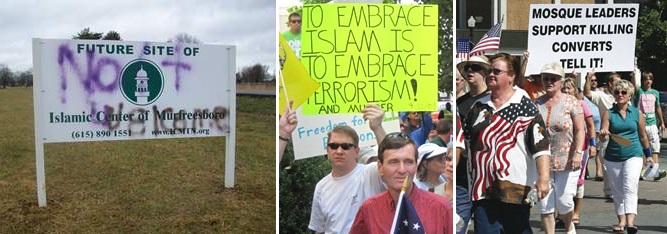 For years, opponents of the Islamic Center of Murfreesboro vowed to take their legal fight to shut down the mosque all the way to the U.S. Supreme Court. That fight ended Monday (June 2), when the nation’s highest court declined to hear their case.
For years, opponents of the Islamic Center of Murfreesboro vowed to take their legal fight to shut down the mosque all the way to the U.S. Supreme Court. That fight ended Monday (June 2), when the nation’s highest court declined to hear their case.
The four-year conflict over construction of the mosque, which opened in 2012, brought national attention to this Bible Belt city of 112,000 about 30 miles south of Nashville. Hundreds marched in protest after Rutherford County officials approved plans for the mosque in 2010. Televangelist Pat Robertson labeled the Islamic center a “mega mosque” and claimed Muslims were taking over Murfreesboro. An arsonist set fire to construction equipment on the building site.
Mosque opponents eventually filed a suit against Rutherford County, seeking to block construction of the worship space. On the surface, the fight was over the minutiae of Tennessee’s sunshine, or public notice, laws. Mosque foes claimed local officials failed to give adequate notice of a meeting where plans for the mosque’s construction were approved.
But a thriving anti-Muslim movement in Tennessee fueled the fight. Mosque foes asserted that the First Amendment’s guarantee of religious freedom did not apply to the mosque. In court, Joe Brandon Jr., a lawyer for mosque foes, said Islam is not a religion, and he argued that the mosque was a threat to the community.
Initially, a local judge ruled for the mosque foes and ordered a halt to mosque construction. But a federal court quickly overruled that decision, paving the way for the mosque to open in 2012. A state appeals court also later overturned the lower court decision.
Local Muslims, many of whom had worshipped in the community for years, found themselves having to defend their faith and their status as American citizens at the trial.
It was a difficult process, said Saleh Sbenaty, a college professor and longtime member of the Islamic Center. Members of the Islamic Center found help in local interfaith groups and other local leaders who rallied to their assistance. More than 100 local religious leaders signed a letter supporting the mosque. Sbenaty said his faith in the American justice system never faltered. “Today the Constitution prevailed,” he said. “It shows that the Constitution upholds the rights of those who are in the minority.”
Remziya Suleyman, director of policy and administration for the Nashville-based American Center for Outreach, said that a lot of good has come from conflict over the mosque. Local Muslims are more engaged in the community, she said, and have closer ties to local interfaith groups. They’ve also gotten a great deal of community support. But she regrets that the county had to spend more than $340,000 in legal fees fighting the lawsuit. Suleyman is relieved and grateful that the lawsuit has finally been put to rest. “Clearly, enough was enough,” she said.
Having a new building has been a boon to members of the Islamic Center. For years, congregation members had worshipped in converted offices at an industrial park, where the space was cramped and parking limited. Today, weekly prayer services draw as many as 600 people, and there’s plenty of space for all. “This is home now,” Sbenaty said.
Imam Ossama Bahloul said the new facility, which includes a playground, gives the community more space to worship and invite guests. The center has hosted visits from a number of church groups and a Nashville synagogue. He said that the congregation always had faith that the law was on their side. “We believe in the Constitution and we followed the rules,” he said. “Now it’s time to put all of this behind us.”
Foes of the mosque haven’t given up yet. A group of plaintiffs recently filed suit to block local Muslims from building a cemetery on the mosque grounds. According to the Daily News Journal in Murfreesboro, a ruling on the cemetery lawsuit is expected in mid-June.
Religion News Service, 3 June 2014
See also “Public notice case on Murfreesboro mosque over”, Daily News Journal, 2 June 2014


